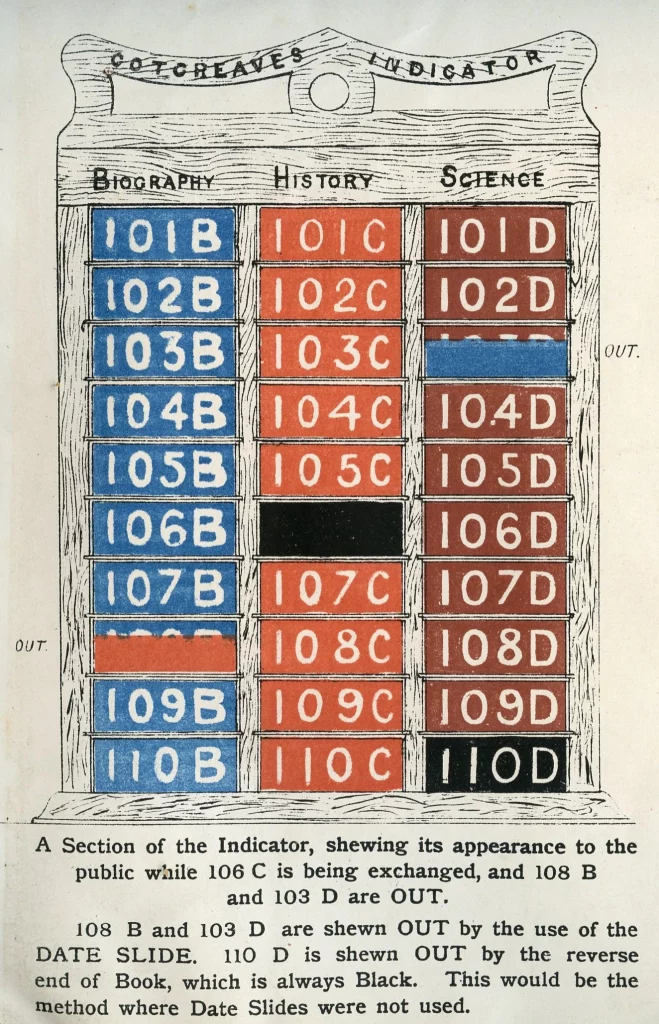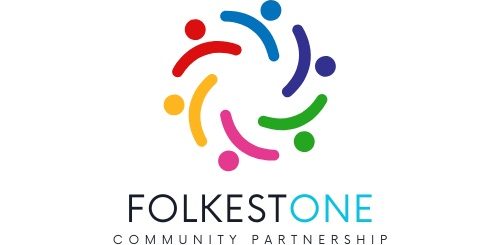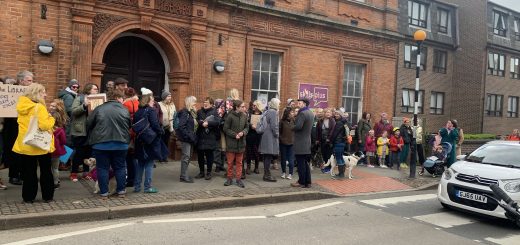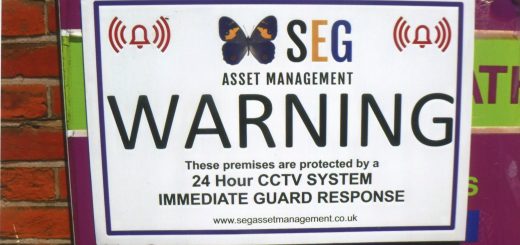Literature? Splendid stuff!

A final contribution to the entertaining and informative series of blogs
– loosely linked to the history of Folkestone Library –
by Professor Carolyn Oulton, School of Humanities, Canterbury Christ Church University
‘He had no doubt it was very splendid stuff, but he couldn’t quite make out what it was all about.
There was an occult meaning, he knew, in literature, and he had forgotten it.’
When H. G. Wells wrote Kipps in 1905 the idea of studying the Humanities as a ‘low value’ way to spend one’s time would have made no sense at all. Literary culture was both a status marker and by extension a route to a better life. The problem was that not everyone had equal access to books.
Image below of a Cotgreave Indicator: an early version of a system for knowing which books were in stock at the library
Read more on this fascinating system and the history of libraries on a Manchester Metropolitan University blog… here!

For Kipps a university degree is never an option. When he wants to supplement his slightly shaky education he therefore turns to the Folkestone Free Library for help.
Here he is confronted by an indicator, an ingenious system of small doors that opened and shut to show which books were available at any given time.
‘First-class idea. Tells you all you want to know’ insists the clearly intimidated young man.
At this time the library would still have been set up to reflect clear boundaries: the public reference room where anyone could read books, the periodicals and ladies’ rooms, and finally the lending library where signed-up members could request books directly from the librarian.
In each case Kipps knows that he is potentially being judged. Is he dressed appropriately? Asking for the right books? Pronouncing the authors’ names correctly?
When I started my research on the history of the free library I felt something of this fictional Edwardian’s nervous panic. Like Kipps I had to go up to a desk and ask a librarian to find things for me. There were boxes of old catalogues and records, journals and newspapers. I wasn’t sure what I should ask to see first or exactly what I was going to do with it once I had it.
To add to my perplexity, some of the journals were on microfilm. If you remember getting a cassette stuck in the car and trying to unravel it with a pencil while trying to read a map at the same time… Still don’t you tell me you could cope with a microfilm reader, believe me it’s not that simple. But librarians are magic people. And I know that because they not only set me up on those microfilm readers; they managed not to shake me when I ‘spooled’ them wrong and put the reels back with all the images back to front.
But don’t let me put you off, there are easier ways to read historic papers. Many of them have been catalogued and digitised so that we can all research our family trees or the history of our local town. But if you don’t want to pay a subscription fee, where do you access this treasure trove?
Try the library, where it’s free and someone is always on hand to talk you through it.
Oh, and do me a favour? The next time someone says you can’t get a decent job with a Humanities degree: just remind them who researched those hundreds of journals, then catalogued and digitised them for us all to enjoy. It might well be that librarian who’s just made you feel so welcome on your way in.
Editor Note:
We’d like to express our thanks to Carolyn Oulton for her support for the Save Our Library campaign supporting Grace Hill Library in Folkestone and for the sheer entertainment value of her blogs, tweets and other contributions.
You may like to visit the Kent Maps Online project, another of Carolyn’s many interests, where she and the KMO team produce themed essays linked to historic maps and documents revealing a hidden side of Kentish life ….
Carolyn Oulton
Carolyn Oulton is Professor of Victorian Literature and Director of the International Centre for Victorian Women Writers at Canterbury Christ Church University, where she also teaches on the Creative and Professional Writing BA. Her research interests include seaside literary heritage and the culture of shared reading.



